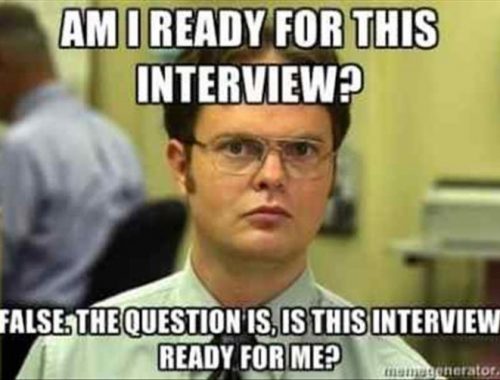Procrastination. Through the eye of Gibb.
Work experience. One might think it could be rather straightforward, though obtaining a work placement isn’t as effortless as it seems, especially if you struggle with procrastination. Join me through this blog, as I show you the journey of finding my work experience, while using Gibbs Reflective Cycle (1988) to analyse and critique my decision making, development and results.
[Shown in Figure 1.1]
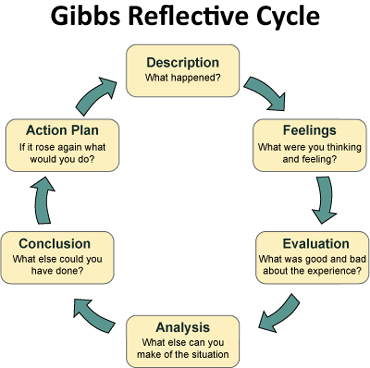
What is Gibbs Reflective Cycle?
Gibb’s framework has become a seminal theory, influencing later developments of reflective practice’s that have been written within the last 15 years. Gibb’s cycle consists of 6 stages that take you through the stages of the reflective process by asking a series of que questions, making it easy to learn and apply to your work and experiences. (Jasper, 78) I will be using Gibb’s reflective model to reflect on my initial experience with finding work experience in Belfast by going through the 6 stages within the cycle.
Stage 1: Description of the Event – What Happened?
To be honest, I left getting work experience late. I had been working privately all over summer and didn’t notice the days go by, but by the time I remembered about work placement, we were already in September. This brought haste into my heart, pushing myself into third gear by sending my CV and portfolio to every film and media company in Northern Ireland. After weeks with no reply, my anxieties were finally lifted after being contacted by Blue Sky Video Marketing in Belfast. The result of this eventually led me through an interview process to work as an assistant producer and video marketing editor for their online webinars they live stream twice a month.
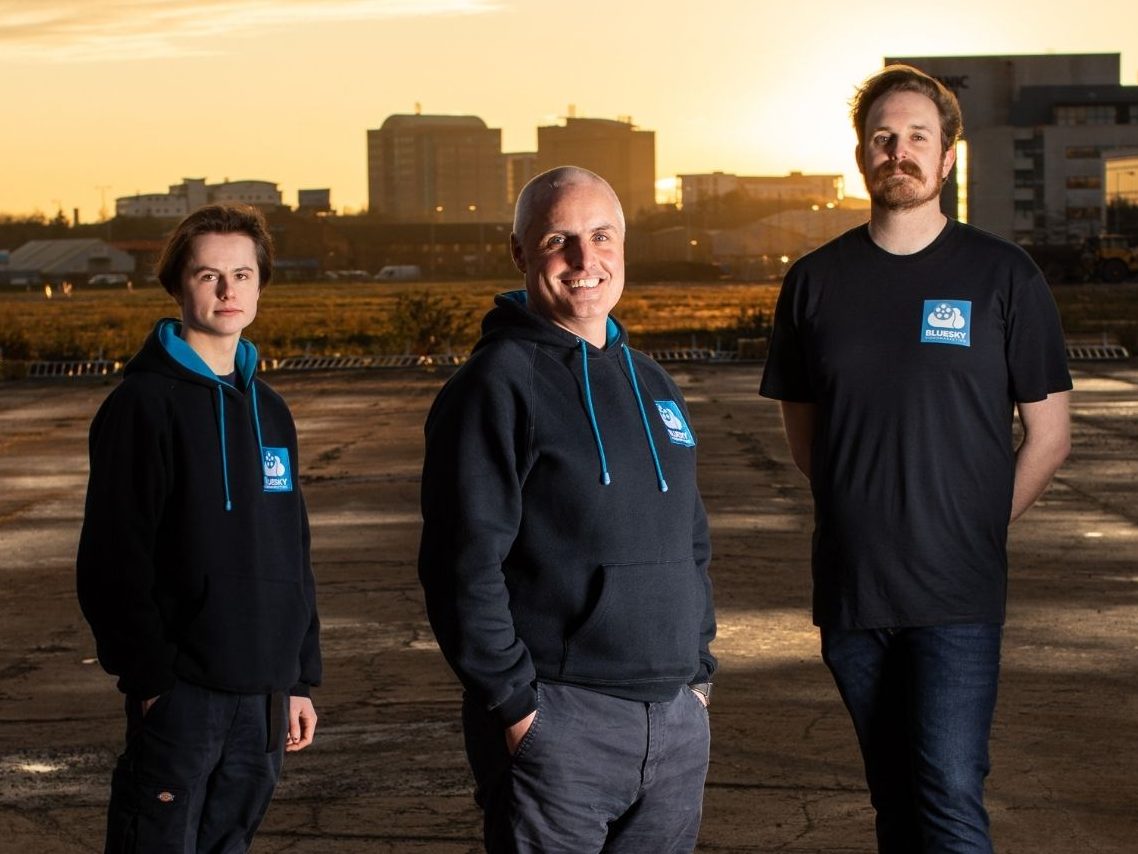
Stage 2: Feelings – How was I Feeling?

My feelings throughout this process have been varied and diverse. At the start of placement hunting, I had a great strength of anxiety on my shoulders, as I thought no one would want to bring me on into their team in such a short notice. However, when I achieved my placement, my anxiety turned into excitement, as I was finally able to dive into the world of business. I also was cautiously ambitious to join the team of Blue-Sky Video Marketing, as I wanted to help myself learn new skills, but also provide my employer with satisfaction and confidence with the content I will help produce.
Stage 3: Evaluation – What was good and what was bad?
I had applied to different areas of the media industry around Northern Ireland, as I have a broad understanding and knowledge that could be useful in a variety of areas. I first applied to film and tv production houses, from the likes of “Cinemagic” and “N.I Screen”, trying to get work as a videographer. However, I have also been interested in video marketing since I was around 16, which enticed me to apply to different video marketing agencies around Northern Ireland. After applying, I was given an opportunity from two businesses, but had to choose one. The two businesses were “VAVA Influence” and “Blue-Sky Video Marketing”. I Chose Blue Sky over VAVA as it was more decentralized, allowing me to have more impact on the business and allowing me to put ownership into my work I produce with them. For Example I produced an advertisement for them, promoting one of their live webinars they stream each month.
[Shown in Video 1.1]
However, the only negative from this work experience has been the hours I have been getting. In the entire month of October, I didn’t have a single hour, which kind of stained my thoughts on the business for a brief time. Although, now in November, I have had over 20 hours of work experience in the last two weeks.
Stage 4: Analysis – What else can you make of the situation?
The result of leaving my application process so late, showed to me how I can naturally work well under pressure. This can be crucially beneficial in any business as changes and problems occur often, regardless of how well organized and planned the company is. (University Of Leeds Careers Centre) From doing research, I have discovered benefits from working under pressure which I find are true within my position. The main three benefits include, more energy and focus into your work and save time by finishing tasks more efficiently (Team). I think the first two apply to myself, as I find when I put pressure on myself, I go into a flow state, having complete focus on the mission or project I apply to. When obtaining work experience, I stayed up to late hours of the night, refining my CV and portfolio with as much content I could put on it that would be useful for employers. I had multiple portfolios created within 24 hours to apply to different areas in media and film, which took a lot of energy and focus to do. The only thing I would say I don’t achieve, is efficiency. If I had more time, I believe I could have been more efficient with my application process, and not spend my nights sending off application forms instead of sleeping.

Stage 5: Conclusion – What else could have been done?
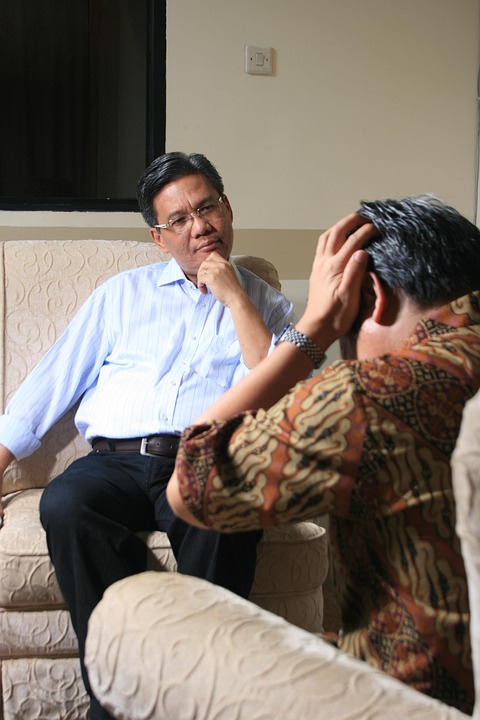
In conclusion, I just scraped my placement to the skin of my teeth. I may have left trying to find work experience to last minute, which wasn’t good for my mental well-being, but I obtained a placement that is in an industry I see myself going into in the future. It has also allowed me to notice how I work well under pressure, which will be used in the future in my work placement, when having deadlines, but also in future film or tv productions that I could be producing later on in my life..
Stage 6: Action Plan – If it rose again, what would i do?
I think through this experience, I have learnt a few things for my future self. Firstly, to become more organized in the coming years, by using a calendar and diary to keep myself on track for the coming projects within my life. However, I have also learned that I can work extremely well under pressure, but I need to make sure it is used in moderation for it to be effective.
Work Cited:
- Jasper, Melanie. Beginning Reflective Practice. 2nd ed., Andover, Cengage Learning, 2013.
- Team, CMOE. “How to Build Your Ability to Work under Pressure.” CMOE, 15 Jan. 2021, cmoe.com/blog/build-your-ability-to-work-under-pressure/#:~:text=If%20you%20can%20work%20well.
- University of Leeds Careers Centre. “Employability Skills – University of Leeds Careers Centre.” Careerweb.leeds.ac.uk, careerweb.leeds.ac.uk/info/4/make_yourself_employable/202/employability_skills/13.
By Luke Darby
Student Number: 40299593
Playing It Safe
You May Also Like
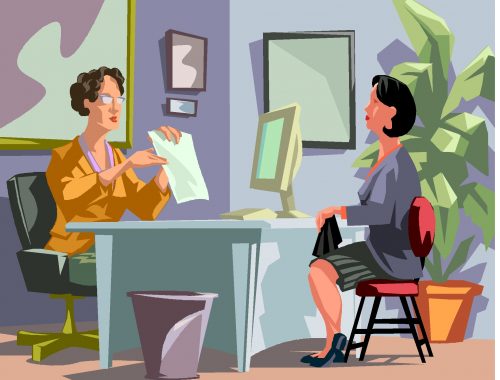
Interview a New You! – Becoming an Interview Guru
24 February 2023
Challenge Accepted Sir!
18 April 2023